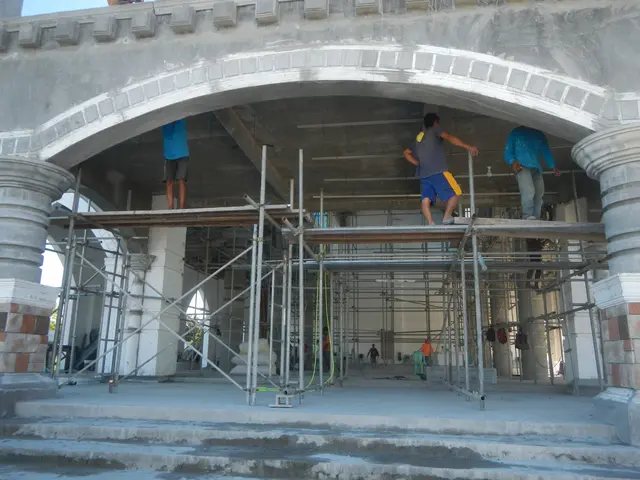Betten Tax Coming to Saarbrücken - Kiel to Impose Tourism Tax, Following Hamburg's Lead, as Dehoga Warns of Burden on Hotels
Kiel, following Hamburg's footsteps, plans to introduce a tourism and culture tax on paid overnight stays. Hamburg implemented this tax, known as the 'turbotax' in 2013, with no known counterparts in Rhineland-Palatinate yet. The 'turbotax', set at 3.5%, is expected to generate around €1.5 million annually, funding tourism promotion. However, the German Hotel and Restaurant Association (Dehoga) warns of the burden it places on struggling hotels.
Hamburg pioneered this 'turbotax' in 2013, with Kiel now set to follow suit. While no cities in Rhineland-Palatinate have adopted this 'turbotax' yet, Saarbrücken plans to introduce it in April 2026. The 'turbotax', at 3.5% per overnight stay, is projected to bring in significant revenue for tourism promotion.
Dehoga, however, expresses concern. The association warns that hotels, already struggling, will bear the brunt of this 'turbotax'. They criticize the timing, arguing that hotels need support, not additional burdens. Furthermore, hotels may face administrative challenges due to the 'turbotax', and fixed corporate contracts might prevent passing the tax onto guests.
Kiel's planned tourism and culture tax, or 'turbotax', mirrors Hamburg's 2013 initiative, with Saarbrücken set to join later. The 'turbotax', at 3.5%, is expected to generate substantial funds for tourism promotion. However, Dehoga raises valid concerns about the burden on hotels and potential administrative challenges.
Read also:
- India's Agriculture Minister Reviews Sector Progress Amid Heavy Rains, Crop Areas Up
- Over 1.7M in Baden-Württemberg at Poverty Risk, Emmendingen's Housing Crisis Urgent
- Life Expectancy Soars, But Youth Suicide and Substance Abuse Pose Concern
- Cyprus, Kuwait Strengthen Strategic Partnership with Upcoming Ministerial Meeting







